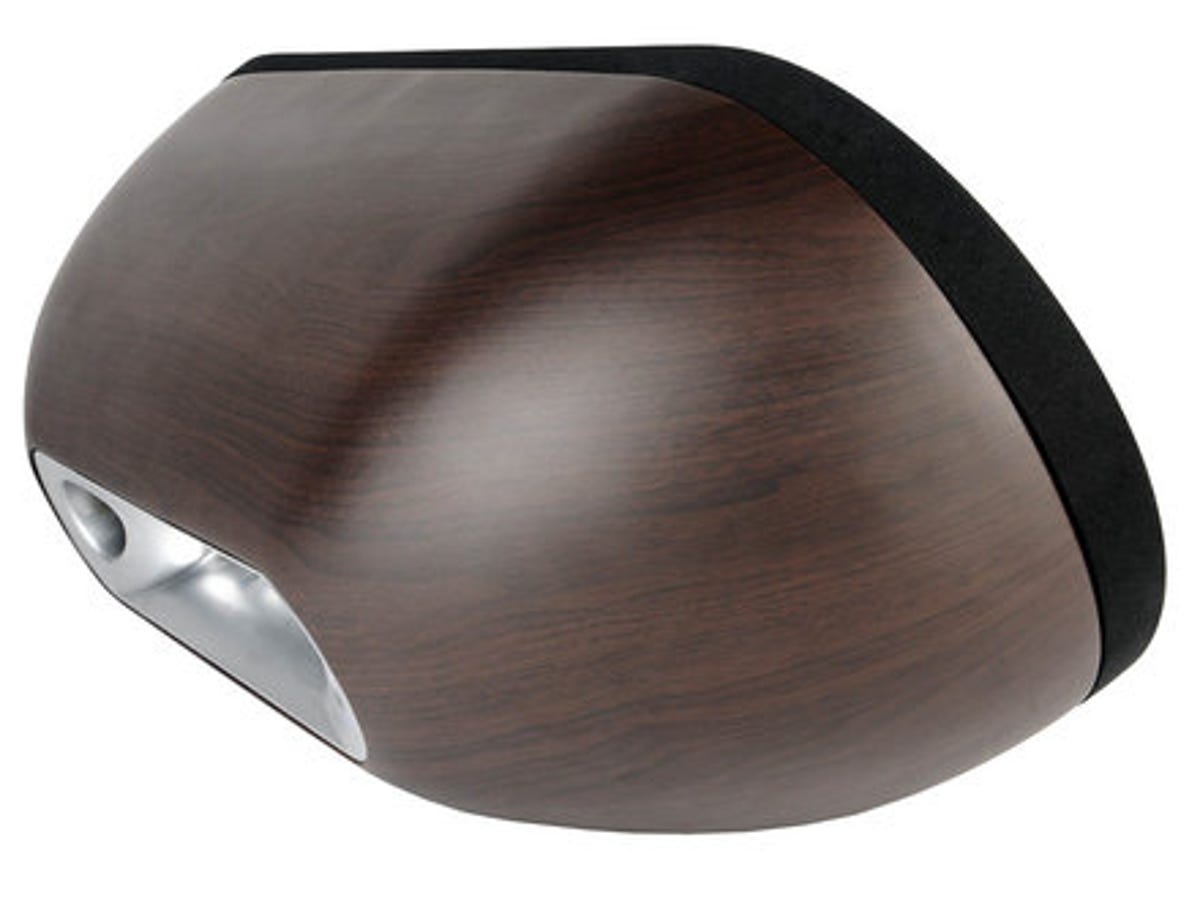 Why You Can Trust CNET
Why You Can Trust CNET Philips Fidelio Primo DS9000P review: Philips Fidelio Primo DS9000
The Philips Fidelio Primo DS9000 offers great sound quality and a pleasing design, even if it does have a few sonic quirks. It's no better than the Bowers & Wilkins Zeppelin iPod speaker, but it's worthy competition.
It's a tricky task to make an iPod dock exciting, and it's not a feat many manufacturers have managed. Bowers & Wilkins did it with its near-legendary Zeppelin dock, and now Philips wants in. Here, then, is the tragically named Philips Fidelio Primo DS9000. It calls itself a proper audiophile system, which is quite a claim. Yours for £400, is this dock really worth 40,000 pennies?
The Good
The Bad
The Bottom Line
Fideli-ooh
In terms of design, the DS9000 (sorry, we just can't keep saying Fidelio) is quite the looker. With its huge curved surface, this system looks more like a high-end doughnut than a traditional speaker. The centre loop has a chrome trim, while the back of the speaker has a plywood body. It doesn't strike us as likely to win many style awards. The wood finish is a little dull on close inspection, but it's a decent enough build and it won't cause your house guests to vomit as soon as they clap eyes on it or anything.
Connectivity is extremely sparse. Apart from the iPod/iPhone connector on the front, a 3.5mm aux input is the only port you're getting. It'll let you plug in a different MP3 player, or indeed a laptop or CD player if you so wish.
The DS9000 is a pretty chunky speaker, measuring 562 by 214 by 216mm. At 6.5kg, you're best not to balance it on any fragile or antique side tables. Still, its wide body is required to contain all the noise-generating bits and bobs. After all, its production of audio, rather than its design or dimensions, is where the DS9000 really shines.
The first thing you'll notice is that the Fidelio (we're going to try and say it) generates relentless amounts of bass, thanks to two 4-inch woofers housed deep within the speaker's body. Any old so-and-so can make a speaker that pumps out bass, but the DS9000 impresses us with its ability to keep that thumping low end under control. Listening to The Smiths's Heaven Knowns I'm Miserable Now, we were impressed at the floor-shaking bass output on the kick drum, and the constant throbbing hum that accompanied the bass guitar. It all sounded incredibly tight and precise, and never obscured the lighter portions of the mix.
In the same song, we identified high and mid-tones being reproduced with remarkable clarity -- we could hear the reverb of each snare hit, and the sizzle of the faint tambourine that accompanies the drums.
Acoustic clarity
This high-end fidelity comes into its own when it delivers acoustic tracks. We have an excellent selection of songs from Studio Ghibli films played on slack key guitar. Listening to these melodious, instrumental ditties, we were impressed by the clarity of the higher, snappier guitar notes. We could also hear every speck of fret noise, which really lends the music an immersive quality. Perhaps it's a case of Monday-fatigue, but we very nearly nodded off in the testing room listening to our acoustic collection. It's a good job we didn't, because the room fills with toxic gas at 5pm sharp each day.
One thing our B&W Zeppelin review mentions is that it's not so great when it comes to rock or metal music, failing to pump it out with any real conviction. Sadly, we found the same was true of the DS9000. As we turned up the volume on punky tracks like Not the Same by Bodyjar, we found the bass became unwieldy and the mid-tones turned a little flat.
This can be remedied -- a little -- with the iPod/iPhone app called Fidelio+. With the app, you can skip tracks and, more importantly, adjust the EQ levels, either manually or by selecting from the presets. To be honest, we can't imagine people wanting to fiddle around with this. While customisability is rarely a bad thing, when you're paying £400, you shouldn't really have to adjust anything in order to get the best sound.
Something we do like about the app is that you can choose to display a clock on your iPod/iPhone when you're using the dock for an extended amount of time. On the other hand, you won't have access to the full music menu that you find in the device's iPod menu, which is pretty rubbish.
Conclusion
Philips might not have the same legacy of quality that B&W has, but, in our estimation, the Fidelio Primo DS9000 is a worthy rival to the Zeppelin. It's not any better and it suffers from some of the same sonic quirks that afflict B&W's dock. In the end, we'd recommend you listen to both speakers and make up your own mind based on how the sound feels to you, and which design you like better.
Edited by Emma Bayly



